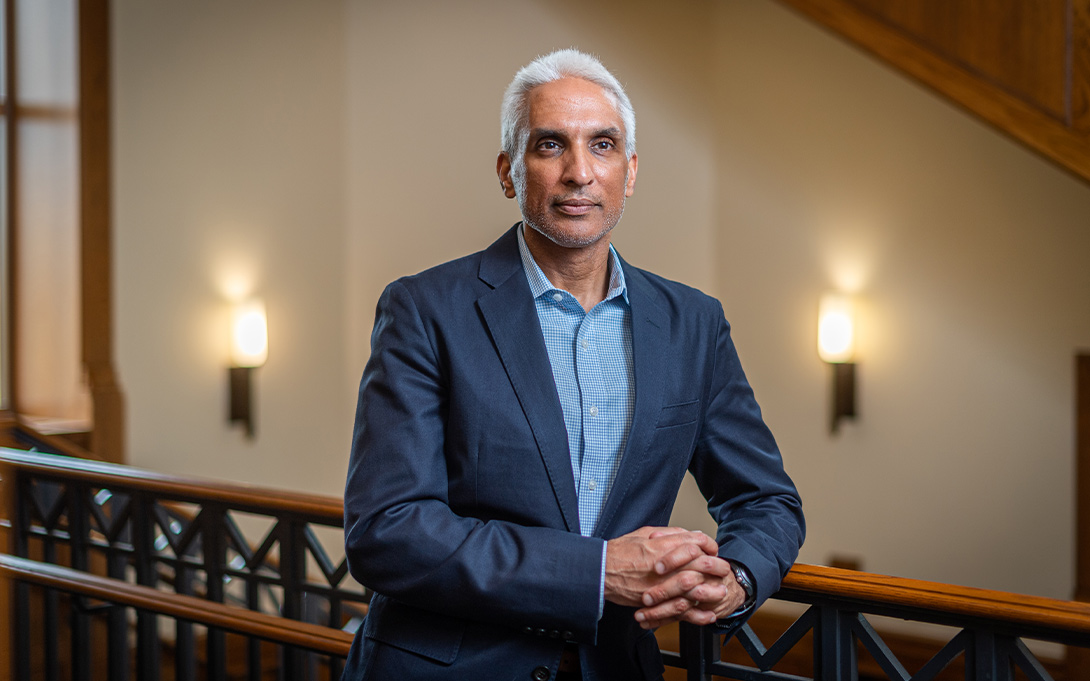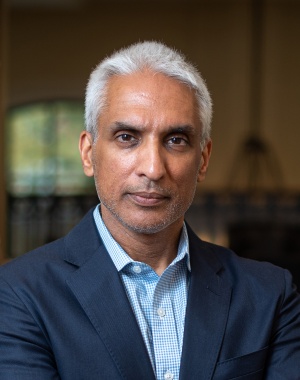
Major developments in the fight against ISIS took place in the past week, and the Ford School's Javed Ali, associate professor of practice, whose area of expertise is national security.
Early in the week, a 42-year-old American woman, Allison Fluke-Ekren, was charged with providing material support to ISIS. She served as a translator for other women, housed them, and taught them how to shoot automatic weapons.
“The charges against Allison Fluke-Ekren are a disturbing reminder of how ISIS was able to inspire and radicalize thousands of foreign extremists to travel to its strongholds in Iraq and Syria and engage in a variety of activities,” Ali told USA Today.
He described how ISIS differs from other jihadist groups in the way they allow women to lead. In Syria, Fluke-Ekren allegedly commanded her own battalion.
"Despite their similar jihadist outlooks, unlike al-Qaeda, ISIS held little to no prohibitions for more operational roles for women in the group, and there were many other women who performed similar functions in ISIS like Fluke-Ekren," Ali told ABC News.
A week after the arrest of Fluke-Ekren, President Biden announced the death of ISIS leader Abu Ibrahim al-Qurayshi.
"The death of the leader of ISIS is another significant achievement for US counterterrorism and for the last 20 years now, the US has made this one of our significant priorities in terms of going after the top leadership of groups like al-Qaeda and ISIS," Ali said on KNX In Depth. "And sort of the operational blueprint for these types of complex raids by the US, we have perfected this over time, or certainly refined it and what happened overnight is a result of a lot of effort and focus on that."
But, Ali said the raid is unlikely to lead to the destruction of the organization.
"In the history of counterterrorism, whether against jihadist groups or other terrorist groups over the last 40 or 50 years, it shows that despite the efforts and the tactical and operational results of these strikes or raids, they almost never lead to the strategic collapse or defeat of a terrorist organization," he told NPR Here & Now. "So you have to understand that too, when you’re trying to make that investment, from a national security perspective. If that’s the intended outcome, it almost never happens and it probably is very unlikely to happen even in the case of this ISIS leader."
This is due to the number of fighters ISIS has across the Middle East.
"There are probably still thousands of mostly local Syrian and Iraqi fighters scattered throughout the countries," he told ABC News. "And as the past couple weeks have shown, they have the capability to launch their own complex operations. So the ISIS threat hasn’t gone away, it just looks different."
Read the items featuring Ali below:
- DOJ: Former Kansas teacher charged with plotting US attacks appears in court, ordered detained, USA Today, January 31, 2022
- American woman arrested, allegedly trained women of ISIS, ABC News, January 31, 2022
- KNX In Depth: ISIS leader killed, KNX In Depth, February 3, 2022
-
Biden says ISIS leader is dead after U.S. counterterrorism strike in Syria, NPR Here & Now, February 3, 2022

